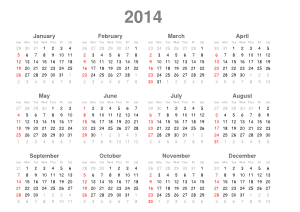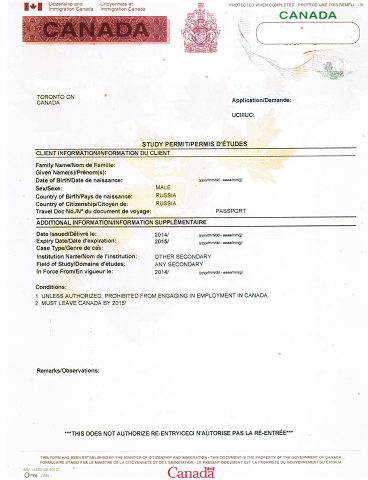Does Your Nationality Affect Your Canadian Immigration Application Processing Time?

Your nationality in itself may not necessarily affect the processing times of your application with Immigration, Refugees and Citizenship Canada, whether for a temporary visa or for permanent residence. Where the visa application centre you apply at is located, however, will determine your processing time. In other words, processing times vary according to the location of each visa processing centre.
Your nationality in itself may not necessarily affect the processing times of your application with Immigration, Refugees and Citizenship Canada (formerly Citizenship and Immigration Canada), whether for a temporary visa or for permanent residence. Where the visa application centre you apply at is located, however, will determine your processing time. In other words, processing times vary according to the location of each visa processing centre. This is due to several factors:
Canada House by James F / Wikimedia Commons / CC BY-SA 3.0
Tip: for up-to-date IRCC processing times, check out this webpage.
- A busy visa office in cities like Shanghai, New Delhi, Abu Dhabi, or London, England receives a great number of applications which means its resources may be more stretched and processing times may tend to be longer.
- A second factor which can run counter to how busy any visa office is, is the amount of resources available at any office. Some offices which receive a great number of applications are still able to handle them efficiently because of their size and organization as well as factors like mail service to and from Canada. This means that there is not necessarily a direct correlation between how busy a visa office is and how long your application will take to process. A further point is that all Canadian visa offices in general are in need of more resources to handle the growing number of applications.
- A third factor is the accuracy of the information given by the applicants as well as how quickly they respond to requests by IRCC for further information. The more rapid the response, the quicker the processing times.
- The fourth factor that can affect processing times is security screening, as well as medical screening. The Canadian Security Intelligence Service, CSIS, states on one of their webpages that “while Canada’s long and valued tradition of welcoming immigrants and visitors continues, Canada and its allies must maintain a heightened and sustained vigilance to counter acts of political or religiously motivated violence and espionage, all of which constitute a threat to our personal and national security, including our economic security. Maintaining the integrity of the immigration system is a vital part of strengthening Canada’s security environment.” While this is a generalized statement, it is quite clear form this that some security clearances from certain areas, especially in the Middle East, may take longer to process due to security concerns. It does not directly state that some nationalities may be more likely to undergo more rigorous security clearances when applying for visas than others, but it does leave open that possibility. Some clue of which nationalities may receive longer processing times is given in the list of nationalities required to provide biometrics. A further delay can be caused by medical screenings which are required for much of the developing world, which means much of Latin America – excluding Chile and Costa Rica – as well as much of Africa, South Asia and China, as well as Central Asia and other areas. They must be done by IRCC-approved physicians which may involve travel within one’s home country. Their reports are then sent through regional offices like Manila or London and then sent on to IRCC. The delays can be substantial.
- A fifth factor is the quality of mail service between Canada and the country in which the visa office being used to apply is located.
IRCC itself makes available on its website a list of typical processing times for applications which is the observable result of the above factors, as well as any other factors that may impact visa application processing times. While this data is specifically related to temporary visas for students, it gives an indication of which offices are more efficient and thus better able to handle the applications. Some of the fastest offices are not necessarily the ones with what must be assumed to be a low number of forms to process. New Delhi has one of the most efficient Canadian visa offices in the world judging by its surprisingly quick processing time for what is undoubtedly an enormous number of applications. Prague, on the other hand, is understandably near the top. Here is a sample of some the best, the mediocre, and the worst – in terms of processing times – of Canada’s visa offices around the globe:
- The visa office with the longest processing times – all these results are based on data from mid-2013 to mid-2014 – is Lagos, Nigeria at 21 weeks. Considering that in a nation of 174 million inhabitants there are 5 Physicians approved by IRCC to do immigrant medical exams, or IME’s, perhaps it is not too surprising that processing times are slow.
- At number two in the slow race we have … New York City at 19 weeks. While this is a bit of a shocker, it may be that the visa office in New York has very rigorous screening procedures in place seeing that it can be a way station for those newly arrived in the US who wish to settle in Canada and use New York as a springboard.
- Pretoria, South Africa comes in at number 3 with a processing time of 16 weeks, and this is likely due to rigorous medical screenings due to the AIDS epidemic the Republic of South Africa has been struggling with for the past couple of decades.
- Abu Dhabi, UAE, and Ankara, Turkey had processing times of 10 and 11 weeks respectively, placing them more in the mediocre category. Security screenings are likely a part of their relatively slow processing times. Rabat, Morocco on the other hand, had a fairly good time of 7 weeks, a week faster than Hong Kong and Sydney, Australia which both had processing times of 8 weeks.
- In the top category, Beijing and Shanghai had processing times of 6 weeks, while New Delhi and Chandigarh, India had very good times of 3 weeks, perhaps because of the Student Partner’s Program, or SPP, seeing this is data on temporary visas like student visas. It must also reflect a well-run organization in the India offices, given the volume of applications they face. Rome has a similar time of 3 weeks.
- In the best of the best category we have two visa offices, both of them from smaller countries with well-run legal and political systems. Prague, in the Czech Republic and Santiago, Chile top the list of visa offices around the world, with processing times of only 2 weeks. The volume of applications at these two offices is likely moderate, given Chile’s sound economy and financial system, and the Czech Republic’s solid integration into the EU.
While this list can give you an idea of what sort of delays to expect based, indirectly, on your nationality, an important point to remember is that if not applying from an office within your home country, one likely faces a longer processing time. Witness the case of NYC’s visa office. In other words what seems to count is the relationship between your nationality and the particular visa office you are applying at. If you are applying at a visa office of the country you are living in, but you were born or lived somewhere else prior to applying to come to Canada, expect delays in your application processing time, because one visa office may send your application to another visa office before processing is completed.
In a fluid, fast-paced world, these types of dynamic relationships will have to be micro-managed by agencies like IRCC to enable immigrants from around the world to have a reasonable chance at a visa and life in Canada. Nationality is an undeniable factor in processing times when immigrating to Canada, but it is only one among many in a constantly changing world.

